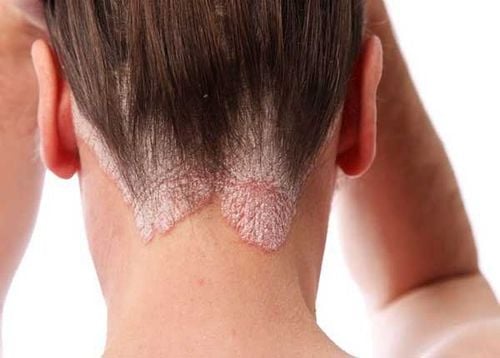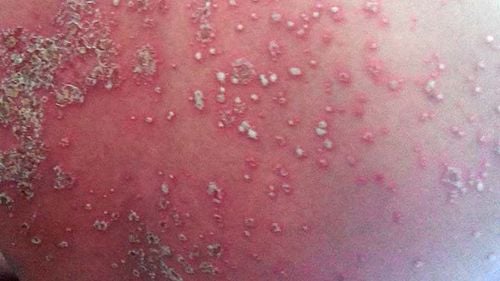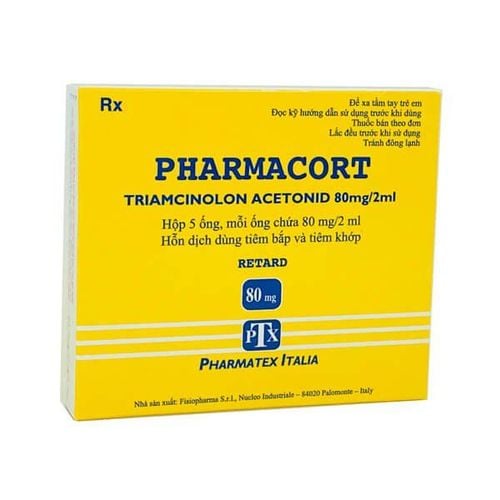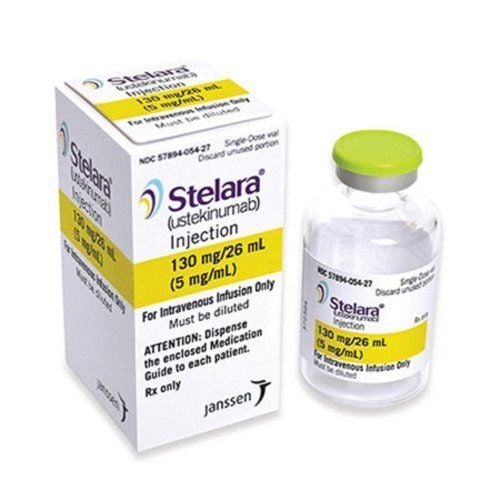This is an automatically translated article.
Psoriasis is a condition in which new cells grow too quickly, accumulating in the top layer of the skin. At that time, the body cannot get rid of the old cells in time, the blood vessels swell, causing thick and red plaques on the skin.
1. Plaque psoriasis
This is the most common type of psoriasis. The patches of skin are red, raised, and have silvery-white scales. This condition usually appears on the scalp, elbows, knees, and lower back. They may be worse as they crack and bleed causing itching and pain.
The more the patient scratches, the thicker the plaque layer becomes. A plaque can be up to 4 inches wide, sometimes more. Plaque psoriasis can appear at any age, but is more common in adults.
2. Scalp Psoriasis
About more than half of people with psoriasis have psoriasis on the scalp. It looks like dandruff but not quite. Dandruff flakes are yellow and greasy. Scalp psoriasis looks like silver or white chalk dust. Sometimes, the scalp is just a little rough or flaky. Scalp psoriasis can cover the entire head, or it can appear on the forehead, back of the neck, and around the ears.

Vảy nến da đầu có thể xuất hiện ở gáy
3. Psoriasis Guttate
Children and young adults are susceptible to Guttate psoriasis. This is a condition in which small red dots appear suddenly on the body. It usually affects the arms, legs, scalp, ears and face.
Certain factors increase the risk of Guttate psoriasis such as: strep throat, flu, colds and other upper respiratory tract infections. Up to 10% of people with psoriasis have it.
4. Inverse psoriasis
Inverse psoriasis is known for its red, shiny, smooth, and often scaly rash. This condition usually appears in skin folds such as: armpits, groin, genitals, buttocks, under women's breasts, and behind the knees. As rubbing and sweating can make the condition worse.
5. Pustular psoriasis
This is very rare psoriasis. The causes of pustular psoriasis can be: infection, stress, medications, or exposure to certain chemicals. It causes red, swollen patches of skin with pus-filled bumps. When dry, they turn yellow-brown and scaly. This condition usually appears on the palms or bottoms of the feet.

Vảy nến thể mủ xuất hiện ở lòng bàn tay
The blisters can burst, causing the skin to crack and cause pain.
Pustular psoriasis can be life-threatening. Therefore, the patient should immediately go to the hospital for treatment if the pus spreads quickly throughout the body. The emergency symptoms that the sick person may experience are: severe itching, rapid pulse, fever, muscle weakness and chills.
6. Erythrodermic psoriasis
Erythrodermic psoriasis is a very rare condition. It causes areas of skin to turn bright red like a sunburn, then fall off the body. Common symptoms include: extremely itchy and painful skin, fast heartbeat, and feeling very cold or hot.
Erythrodermic psoriasis can be life-threatening. Causes include medications such as corticosteroids or untreated plaque psoriasis. Therefore, when symptoms of Erythrodermic psoriasis appear, you should immediately go to the hospital for early treatment.

Bệnh vẩy nến Erythrodermic có thể gây nguy hiểm tới tính mạng
7. Nail psoriasis
About half of people with psoriasis also have skin cells that build up under the nails and become thick. They are often split or cracked. In severe cases, they can crumble or fall off. Nail psoriasis can have red-brown or yellow spots underneath the nail. Sometimes, the surface has small dents in it.
8. Psoriatic arthritis
About one-third of people with psoriasis will experience joint pain, stiffness, and swelling. When both of these problems occur at the same time, it is called psoriatic arthritis.
However, the symptoms do not have to occur all at once. Dry, red patches of skin with silvery scales usually appear first. Common symptoms of psoriatic arthritis include: broken nails and color changes.
Vinmec International General Hospital is one of the hospitals that not only ensures professional quality with a team of leading medical doctors, modern equipment and technology, but also stands out for its examination and consultation services. comprehensive and professional medical consultation and treatment; civilized, polite, safe and sterile medical examination and treatment space.
If you have a need for consultation and examination at the Hospitals of the National Health System, please book an appointment on the website for the best service.
Reference article source: webmd.com
Please dial HOTLINE for more information or register for an appointment HERE. Download MyVinmec app to make appointments faster and to manage your bookings easily.













